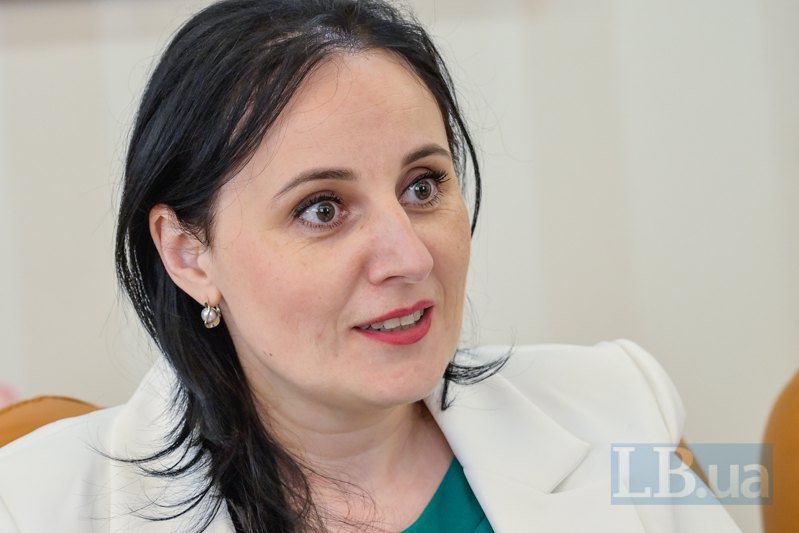
Finding a job is a big problem for internally displaced persons (IDPs) today, especially in the western regions where most people have moved to. No-one was prepared for such an influx of working age people, there are few jobs for them. What can be done to help people?
I don't think there are very few jobs. People in need of care and guardianship have also arrived in the western areas, which means that the segment of service provision for these people is expanding.
There is already a programme in place to compensate UAH 6,500 to an employer who employs an IDP. This makes the labour force cheaper and I think it is a good tool that should be of interest to employers.
There is also state support for IDPs. A total of UAH 8,000 per family if there is a mother and two children. Plus an average of UAH 450 in refund for utility bills per person. So together it makes UAH 9,000.
I wouldn't say that the cumulative amount is less than, for example, for those people who have been left without income and live under shelling in Kharkiv Region.
I don't know how to compare with Kharkiv Region, but UAH 9,000 is not much. And it is not easy for a mother with two children to find a job, especially when kindergartens and schools are closed.
Yes, this needs to be addressed. Nurseries and schools should be equipped with bomb shelters. This issue is gradually being addressed through the Reintegration Ministry and other ministries. But bomb shelters cannot be built quickly. This is a serious challenge.
If the mother cannot work, she should also receive a poverty allowance, if the family's total income is such. Plus there is also UNICEF assistance if we are talking about families with children. There are other international organisations and UN agencies that pay out money to certain categories of people. These payments have to be administered and systematised. We should be taking into account the payments that a person receives from the state and those that go through international organizations because they are all aimed at support.
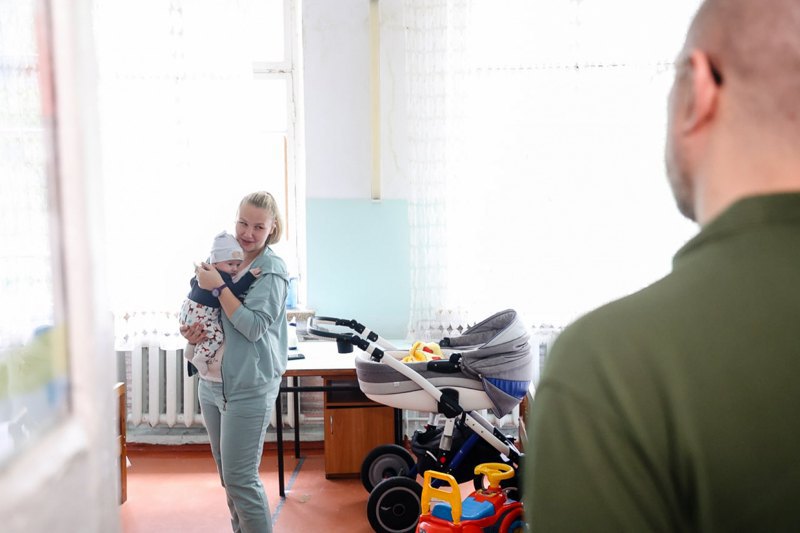
A great deal of money was raised for Ukrainians around the world, especially in the first months of the war. For example, Global Citizen raised EUR 9.1 billion. Does the government have any information about how this money was spent? Or they don't have to keep us abreast on this?
A very good question, honestly. A large amount of this money stays abroad. It is the policy of the European Union and other countries that our people abroad are kept at this expense.
That is why I would really like people abroad to understand that they are being helped out not only from the domestic budgets of those countries. Very often these are special programmes that were opened using these donor funds raised by international organisations for Ukrainians.
We are now trying to arrange that we at least get reports on how much money has been raised and what it has been spent on. And also on the biggest donators in order to at least thank them. We are also asking international partners to ensure that the vast majority or at least a significant part of these funds is spent on programmes inside Ukraine.
And has there been any progress in this regard?
We are moving little by little, step by step. First, we shared programmes, then we gave them our databases. Because in Ukraine you can't do what they did in Syria – just hand out money to everyone. In Syria, people were fleeing from the state regime and were left without state care.
Ukraine is at war with an external enemy. We as a state have not abdicated our responsibility for our people in difficult circumstances. We are ready to administer this, we have registers of people and an understanding of who needs what assistance. We can be a tool for international organisations. If you are not ready to hand money over to us, fine. But let us at least provide information about people who need help. So that it wouldn't be like it was in the beginning - when we came to Lviv and handed out help to all Lviv residents who had flats, cars and good jobs.
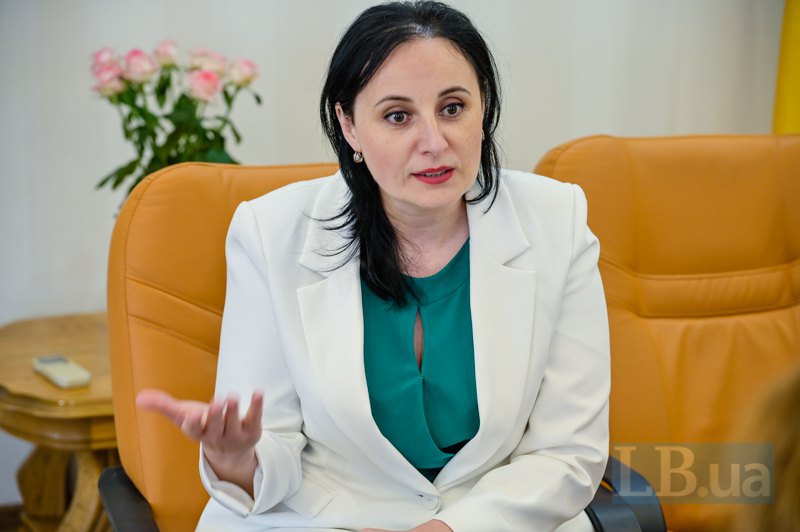
You have mentioned that we need to understand how much money was received from a particular donor and what it was used for in order to at least thank them. Is that understanding already in place? Do we know what the money from the sale of Daniel Radcliffe's robes was spent on?
We don't know exactly. We only know that Daniel Radcliffe donated so much money. That information wasn't available before either.
Summing up this part of the efforts, what kind of help do our internally displaced people need?
They need services. We realise that even if we liberate the territories quickly enough, we still need time to rebuild. People need somewhere to live comfortably for two or three years. If there is a service that provides care for a child or another family member, there will be an opportunity to work. If there is an opportunity to work, there will be an opportunity to rent a place to live. So we are looking for donors for certain target groups, families with children, to provide them with necessary social services.
We also need to work on motivating people to want to return here from abroad. From our ministry's point of view, we need to develop the social services that our refugees have already seen and experienced in Europe. This is especially true for families with disabled children. We need to show them that we are also developing appropriate services and becoming a society that is friendly to such children. This encourages them to come back.
What else could motivate people to return?
It's hard to say. Some will not come back, everyone can already see that. Some will just be scared. I am in touch with my ex-employees who left. I offered them remote work in any part of Ukraine, even in Transcarpathian Region, where it is safest. But the very fact that sirens are going off here is a huge trigger for them not to come back.
Therefore, psychological support needs to be developed as well. And it is also important that these people do not lose contact with Ukraine now. Therefore we plan to organize support centres for our citizens at our embassies, also using donor funds. We also support our citizens financially, we have not stopped any payments.
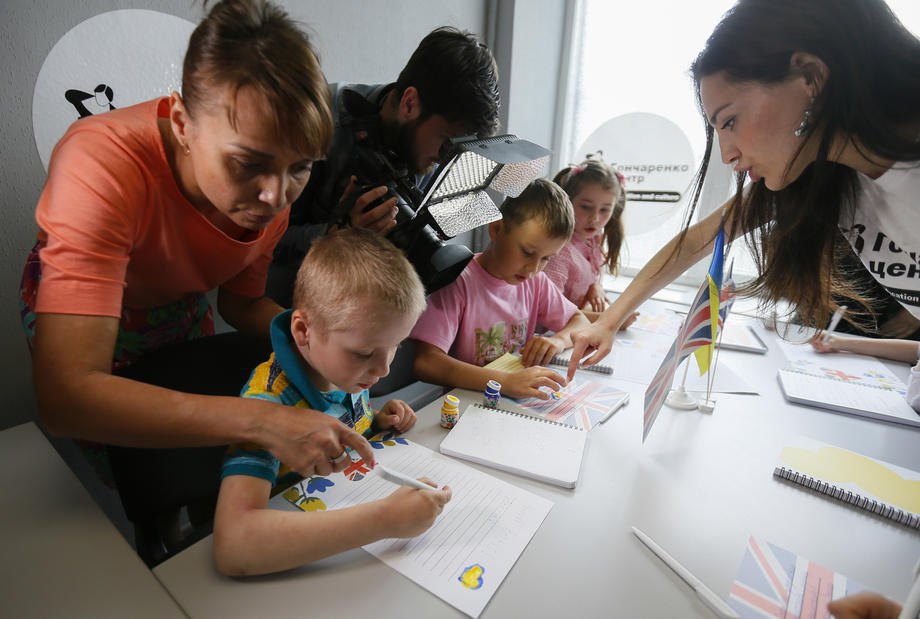
Are there any calculations as to how we will pay pensions in a few years with such losses among working age people?
It is hard to say, this is already a post-war task. We should launch a defined contribution pension system in order to give people a chance to accumulate some fortune to support themselves.
Ukrainians were not particularly inclined to save for retirement. And the events we are experiencing today will probably further discourage them from saving for later.
I don't think so. Where did people invest their money? In real estate. Today they have seen that real estate is also a risk asset.
Yes, and now they will spend money on pleasure (and Bayraktars - LB.ua).
Also an option. But I think that financial literacy is also a stage of citizens' maturity. We just don't have enough tools now, we will develop them after the war. Because now really, who is going to invest in the future if you don't know where a missile will hit?
Will pension reform be designed as was previously conceived?
The design has not changed fundamentally. It was a good design to start with: we were taking a small percentage of the personal income tax to the state bank to show this possibility. And we should have gradually engaged non-state pension funds, having first made a very transparent administration for them with quality control to avoid any fraud. These things can be done already.
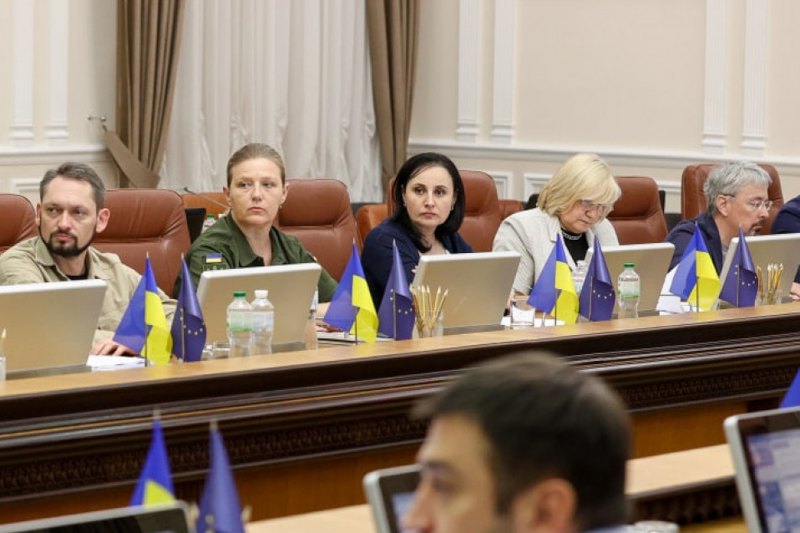
Saving is about future pensions. And what will we be doing in the coming years?
We are preparing a programme that allows you to increase your pension contribution today. At present, a working person has no influence on the payment of their unified social contributions (USS). The employer pays USSs for them from their official salary. We assume that a person may have additional earnings or is simply willing to spend a larger sum on her pension. We are going to give people that opportunity today. It can be, by the way, people who are already working abroad and this way they can support their pensioners in Ukraine and have a chance to get at least some pension here when they want to return in their old age.
It's a complicated story today - you have to join the solidarity pension system by voluntary agreement. We want to make it as simple as possible.
We are also working on the digitalisation of all processes, on the creation of a single social register. It will help us to produce a service-oriented transparent system with universal payments. Because today we have very complex payments, there are many small ones, and their calculation is not completely clear. All of this does not make a person feel secure.
We plan to work with the payments and make sure they have a goal. Because today there are almost no goals in these payments.
And what would be the goal?
The ultimate goal is to overcome difficult life circumstances and help the individual to become economically active.
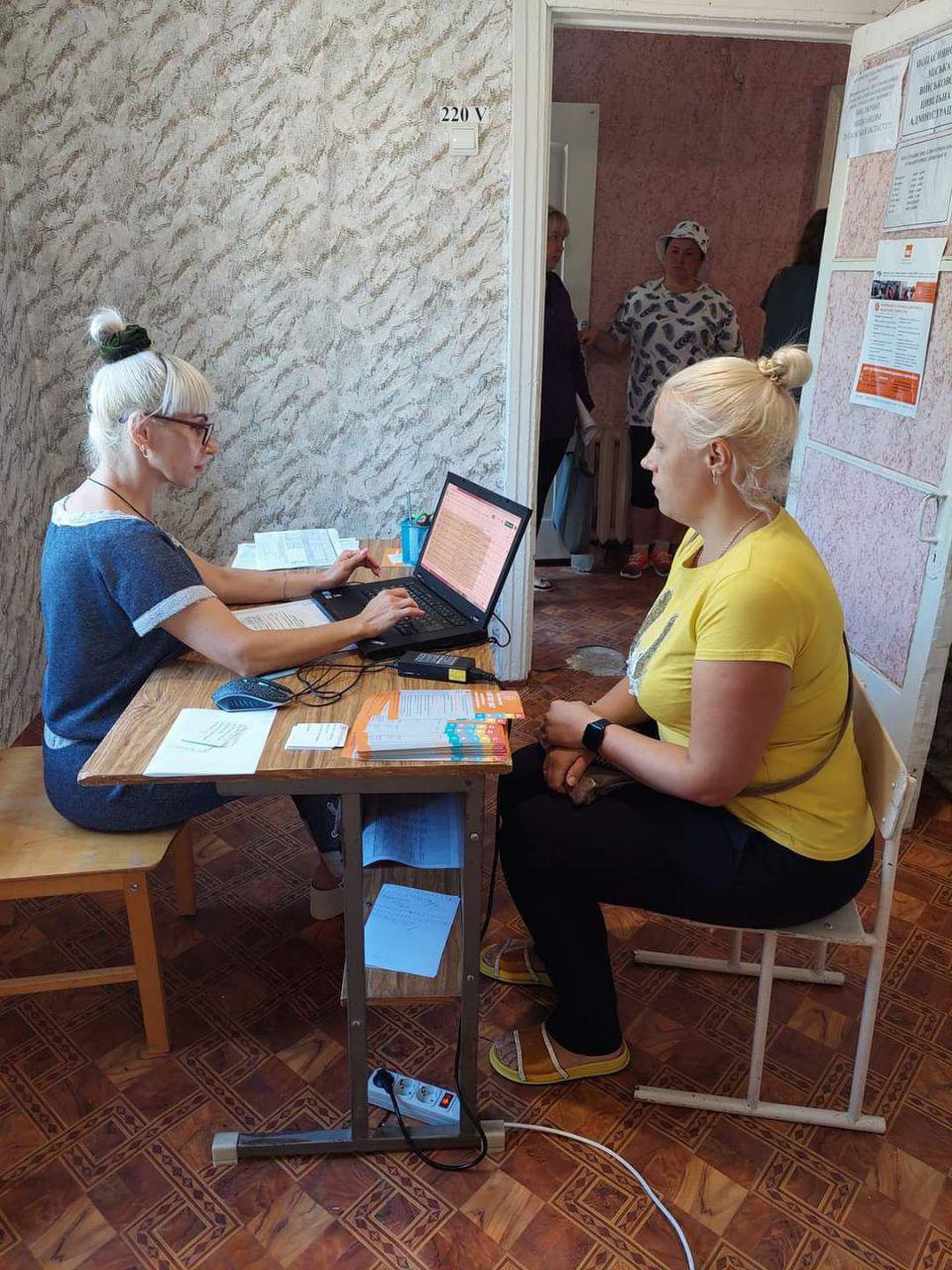
Using disability payments as an example - how would this look?
To begin with, a person must receive timely rehabilitation. For example, after an injury or a stroke. This helps to reduce the rate of disabilities manifold and the person will therefore be able to function much better.
When maximum rehabilitative progress has been achieved, we connect the right aids. For example, prostheses. We provide them quickly, on time, and the person learns how to use them. At the same time, if necessary, we find high-quality retraining for them and take them to the labour market. They get an income and no longer need financial support, only supportive rehabilitation, which must continue.
Is it even possible to refuse from a disability pension if you don't need it?
Today you cannot. We have people with disabilities who work and receive a salary of UAH 50,000 but still have a disability pension of UAH 1,000, which they do not really need.
I want to completely change the approach to employment of people with disabilities. How is it happening now? There is a quota of 4%, but the penalties for not meeting this quota are imposed only on private businesses. There is no accountability either for the communal or public sector.
And the quota is often reached formally - a person with a disability is fictitiously employed at the minimum wage so as not to pay a fine.
That is why I propose moving away from this quota principle. Anything that is not done willingly only distorts the situation and forces you to find a way out of it.
We want to follow the Polish example, that is to give the employer a choice whether he pays a fee to support the employment of people with disabilities or decides to employ a person with disabilities of his own will, but then we help him with support, social service. Because very often it is necessary to prepare a person with disability to meet the team while the team too needs to be prepared for working with this person. I am sure that if there is such a service, it will be much easier for a person with disability to find a job.
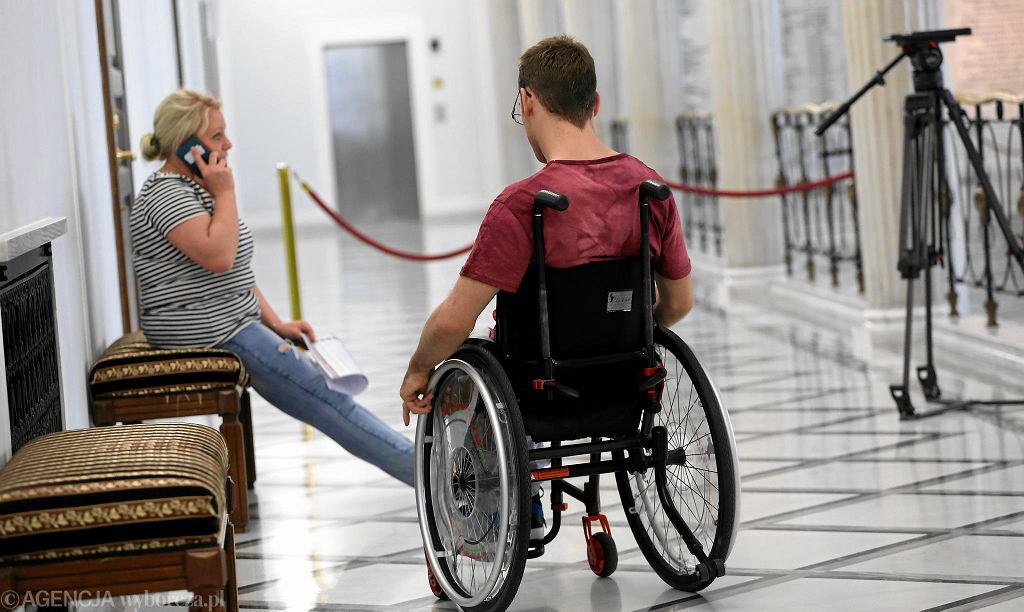
And if the manager is not prepared to employ people with disabilities, he can officially pay the fee without any schemes. And we will redirect these funds to pay for the relevant service.
We are also planning to actively address the topic of rehabilitation. I was involved in social policy and health care in the presidential office. This allowed me to look at social policy from a different angle. I can see how these systems can be integrated.
The areas of responsibility of the Ministry of Health and the Ministry of Social Affairs do overlap. But there used to be little communication between them.
I think we will now work together non-stop. I know everyone in the Ministry of Health down to the middle level. It helps a lot because sometimes you need some very specific thing to be done very quickly.
Is this possible in the ministry in principle? A specific thing done very quickly?
Yes, it's possible, you just have to set the task right.
Really, we did a lot of things, including rehabilitation from the first day of illness or injury. I now understand how to continue this.
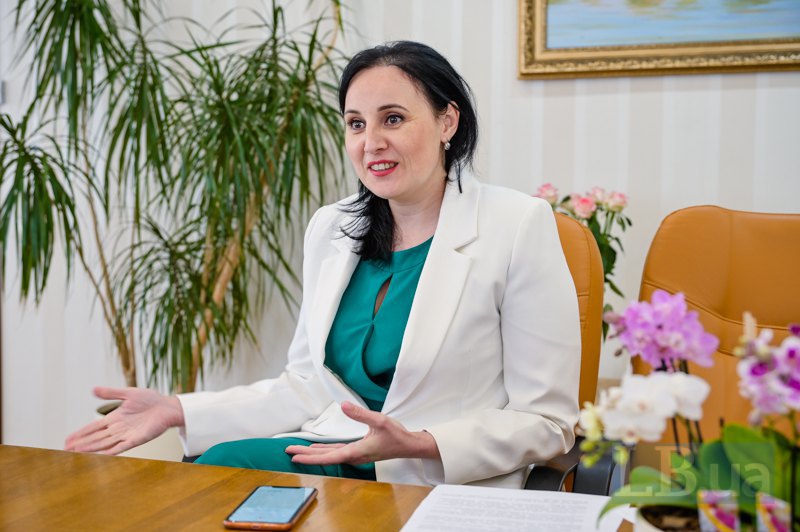
How?
We will provide comprehensive services, integrating health workers and social workers in one place.
Today a person, for example, a combatant who lost a limb in the war, is discharged from hospital empty-handed. And then he has to go through many different bureaucratic procedures in order, for example, to get a rehabilitation aid such as a chair, crutches, sticks, prostheses. This desocialises the person. And it should not be like that. When a person is discharged from hospital, they should already be trained to use their aids. All over the world, they are supplied by the Ministry of Social Policy, but the administration of and familiarisation with them takes place in the health sector. It is essentially a multidisciplinary team effort.
We already have experience of creating multidisciplinary teams working with psychiatric patients. Will this be something similar?
Yes. Those already established multidisciplinary teams will also work with our system. A lot of issues gets solved when there is cooperation and when there is an understanding that the process started in health care can be completed in social policy.
All of this will also be digitalised through the E-Health System, and there will be an exchange of data with our system. As a result, we will be able to determine a person's need for a service many times faster, and the exchange with the health care system will be automatic. There will be no need to carry paperwork and certificates anywhere.

Where would be a person's entry point into this system? For example, in the health care system, it is the family doctor.
This is the way it will be. If we are talking about rehabilitation, you will not get it otherwise than through the healthcare system. You have to register either through your family doctor or through inpatient treatment (in case of an injury, for example - LB.ua). Right at the hospital, a multidisciplinary team must do a complete screening according to the new classifier and determine the patient's needs.
Is there going to be such a team in every hospital?
We and the Ministry of Health determine a certain number of institutions that provide rehabilitation. And we plan to have a social worker and an orthopaedic prosthetist at each of these institutions. So that while a person is still in hospital, they will have their measurements taken and possibly a temporary prosthesis made at that stage. They order the parts necessary for a permanent prosthesis, start shaping the residual limb, and teach how to move. The goal is that when the person leaves the rehabilitation unit, they will already have at least partially restored functionality.
And that the social worker in the same ward could tell the patient that he or she is entitled to such and such benefits, can get such re-training (if there is a need). This will also help to reduce the stress of uncertainty.
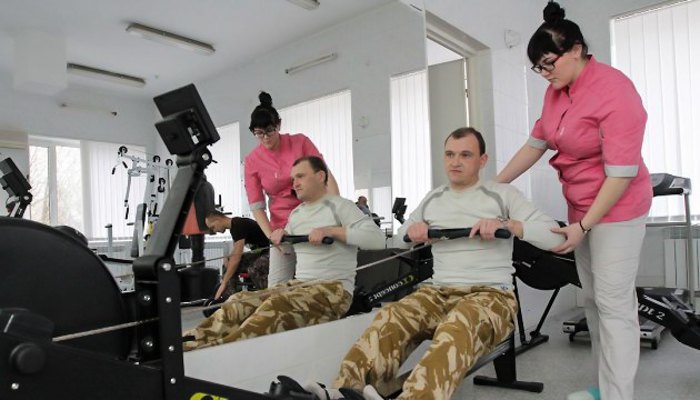
When is this supposed to work properly?
We are now in the pre-negotiation phase with WHO because there may not be enough government funds for such a deployment. Accordingly, we are looking for donor resources. I think we should be able to cope by winter to make everything work.
In healthcare, multidisciplinary teams are only beginning to form and learn. So there won't be many of them yet. But we will send these teams first to the wounded military to create this service for them. And then we will be scaling up the country. In the long run, any hospital will have such a service.
How distant is that prospect?
A year away.
We have a real problem not with hospitals, not with equipment, but with specialists. It is more difficult to train them, it takes time.
This is a hot topic. I understand how painful it is for young people to lose functionality in society. This is therefore one of the first priorities, but not the only one. We have to think about supporting people of retirement age as well as about family forms of upbringing and development.
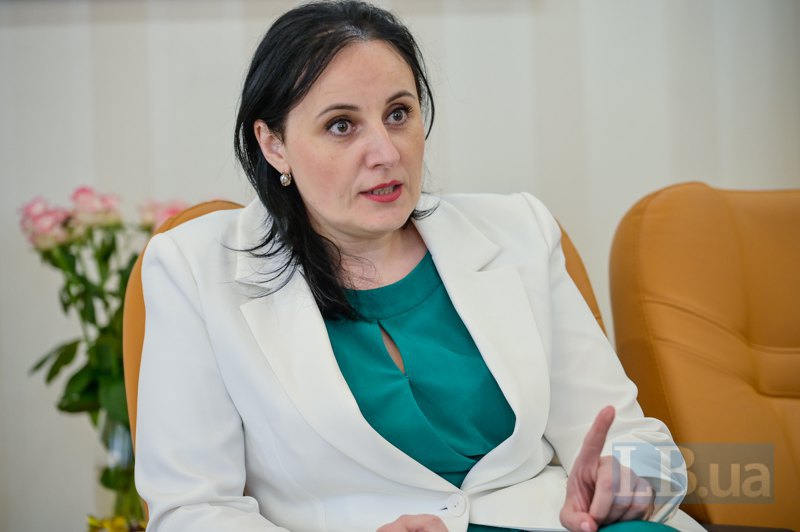
You mentioned psycho-neurological residential care and that there is an opportunity to accommodate patients in communities. When can this be done?
Usually our emphasis is on deinstitutionalisation, i.e. the destruction of the existing system. In my opinion, this is not the right emphasis. Why is it wrong? Today's is a forced form. We understand that there is a certain number of people who need permanent care. For one reason or another their family cannot provide such care. And a person receives a service in the form that society can provide today. In other words, residential care is also a service, but it is a Soviet-style service.
We have a law on social services stipulating that we are replacing Soviet services with European ones. Psycho-neurological residential care corresponds to the European service of supported living, non-professional care for a family member, day care in the community. Our task is to develop these services. When we develop them in sufficient numbers to cover the whole demand, then the transition will take place. We may have to push it a bit...
You may have to do more than a bit.
This will be difficult to do, especially with adults. Especially with residents of psycho-neurological dispensaries, because there is a lot of stigma about them in society. And here it will be necessary to do a communication campaign to overcome the resistance of society.
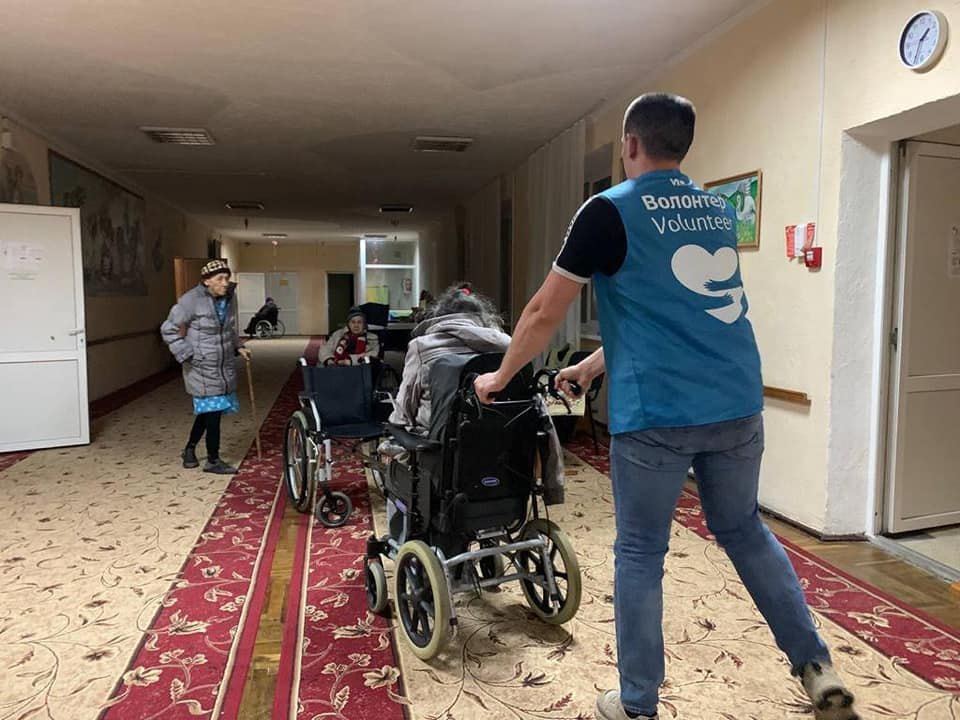
Supported living - living in a flat with social workers. There were big layoffs of social workers in 2017. Is there any hope that this resource can be restored?
We must do this. Indeed, trained social workers are in short supply. And we will need to train them.
The war is maybe even an opportunity because we have unattached people who definitely need to be employed. Instead of just giving them unemployment benefits, it is better to redirect them through an active employment programme and train them in the kind of work that is in demand in society.
The inpatient care service has long been substituted by psychiatric hospitals. The audit revealed that up to 50% of patients in psychiatric hospitals do not need medical services, they just live in the hospital. Accordingly, the function of some of the staff was also aimed precisely at maintaining accommodation, not at providing medical services. This is the staff that could also be redirected to social work outside the medical institution, as it is the medical services that should be provided in the medical institution.
Where can patients from psychiatric hospitals who do not require treatment be referred? It is clear that they should not be in hospital. But the local authorities, particularly in Kyiv, have not offered any accommodation options for these people.
This is a good question. Indeed, the transfer of these services has not worked out at the community level. Communities are not interested in having these services funded.
What can be done? We are taking measures to free up resources in the communities. There are so many people in the social services now involved in accruing and administering different social payments. When this is automated, we can suggest that local authorities redirect human resources to social work. To provide a service rather than administer payments.
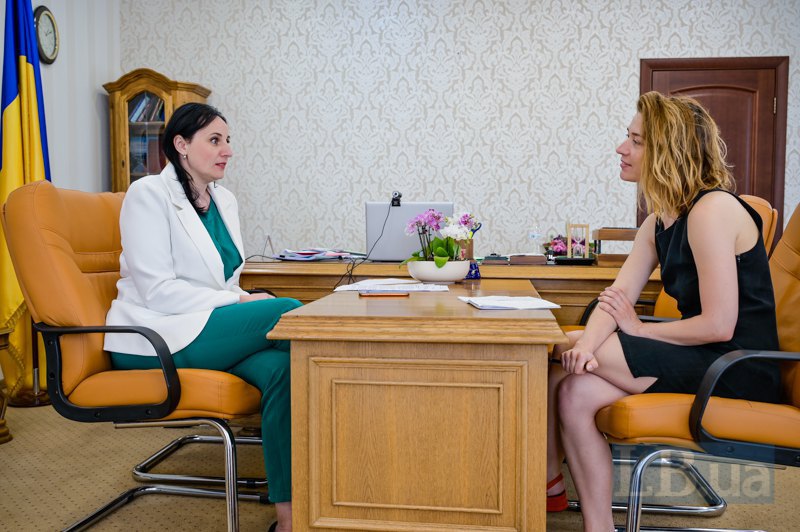
Also, we are thinking about how to redistribute costs in order to procure some services (including supported accommodation) in a centralized manner.
For the state to pay local authorities for these services?
To buy for a certain category in cooperation with the community. So that we get that community interested by giving them money, and that the community adds a little too. That's how we will solve the problem.
Continuing with the issue of residential care, were all the institutions able to evacuate? How did this happen?
It was difficult. And, unfortunately, not everyone could be evacuated. I tried to deal with this when I was still head of the social policy department in the presidential office.
Due to the fact that we still have the old form of care - large residential care facilities - we have faced some challenges. Abroad, there are simply no such places where 450 adults can be accepted and accommodated. And they all have to be together because they have one guardian, that is the head of their residential care. But after all they were accommodated, mostly in other Ukrainian residential care institutions.
It was easier with the evacuation of children because foreigners are more open to them.
What did it look like? Were entire residential care facilities uprooted and moved?
Mostly, yes. And it was a must that they were accompanied by carers - guardians who are responsible for the children.
Children's boarding houses were also relocated within Ukraine, to different sanatoriums.

How many people were evacuated from residential care facilities?
Three and a half thousand people.
Who couldn't be moved?
Adults only. Some establishments remained in Mariupol and in Kherson Region.
Why weren't they removed on time?
It is hard to say. Perhaps no-one expected events to unfold at such speed.
Today, boarding houses are the responsibility of regional administrations, regional authorities. They create them, they liquidate them, they finance them. That is, they are not state institutions which can be moved centrally.
And so during the evacuations, when we telephoned and asked: "Why aren't you evacuating people to other areas?", it turned out that this also had to do with funding. That is, if funding is approved in one region, the institution cannot be moved to another because there is no funding for it there. There were no such mechanisms in the budget for one region to pay for an institution in another. So we made legislative changes that allowed for extraterritorial funding of social services. Which even allowed the central budget to be used to cover services temporarily.
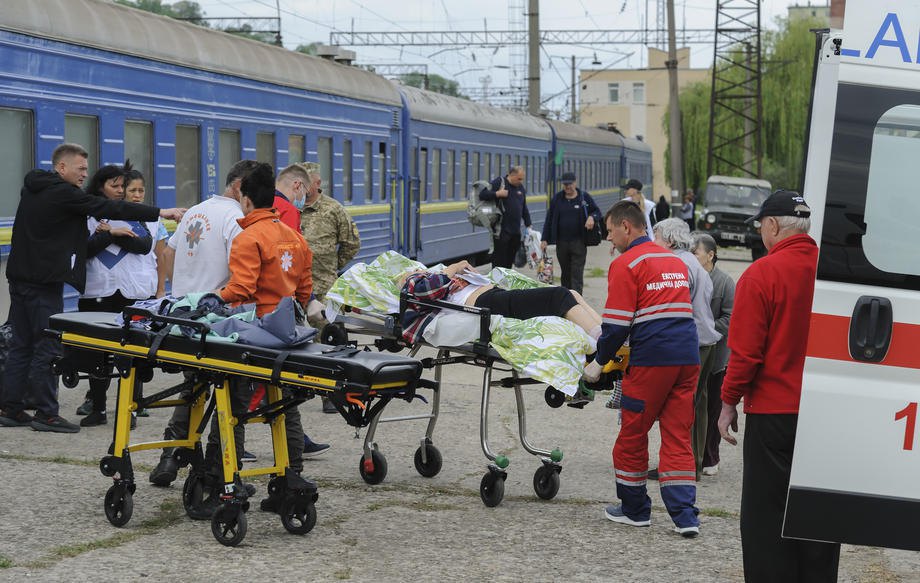
A total of 3,500 people were evacuated from residential care institutions, and how many of them children?
About 1,500. But these were boarding houses only. Family-type orphanages were also evacuated, and foster and adoptive families were evacuated. In total, more than 10,000 children from family-type care institutions have been moved. In general, if we are talking about children deprived of parental care, around 90% of them are in family-type care, and only 10% remain in residential care.
There are also boarding schools in the education system. These are like educational institutions where children live and study. And the vast majority of these children have parents who seem to be unable to provide an education service for the children and send them to boarding institutions.
The parents seem to have been persuaded that it would be better for everyone if their children lived in a boarding school.
There is stigma at the community level, driving children with difficult circumstances out of their secondary schools. This, too, definitely needs to be addressed. I don't want to blame the parents or the communities. I think that the underdevelopment of social services for a certain category of people provokes this situation.
This is not out scope of work, but we had to keep them in focus and provide all the necessary social services to keep the family together and to keep the children in the family. And to avoid a situation when the community is tempted to send children to study elsewhere.
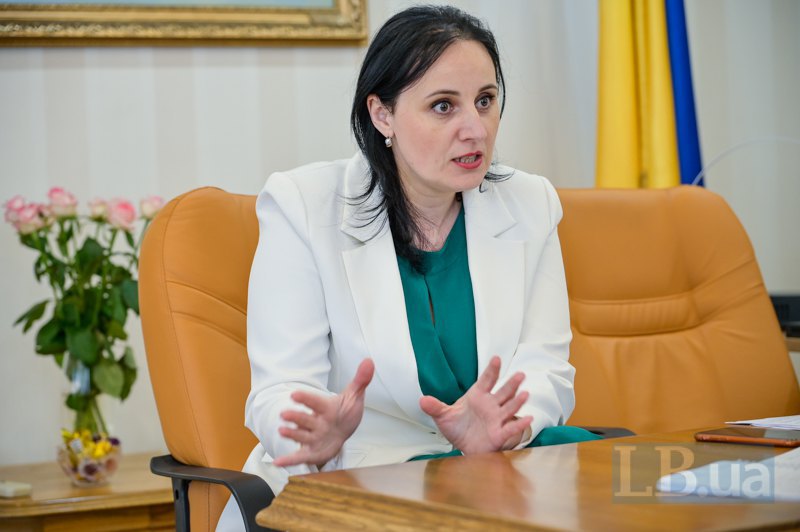
So far the situation has been beneficial to boarding schools. You say that it is wrong to destroy boarding schools, but as long as they exist, the director of a boarding school goes from one village to another to persuade parents to sign their children up because they will be fed there, because they will be educated there.
But when the village head is presented with a bill for keeping this child outside the community, the boarding school director's journeys will end very quickly. There are different methods of influencing the situation. We plan to do it with financial instruments.
When can the process of transferring adult psycho-neurological residential care patients to communities be completed?
It will be gradual because it is really everyone's job. First, an assessment team should be sent to each institution to look at the categories of patients.
Let's be honest, some of the people who have been living in residential care for very many years are so desocialised that they need geriatric care. Just in smaller institutions and in more humane conditions. But this is geriatrics to let them live out all they have left in peace with full support. Unfortunately, these people are no longer able to live independently.
We hope that with the help of different programmes, we can teach some patients elementary things: how to take care of themselves, how to prepare their own food. There may be a transition period: they will still be in residential care, but they will be undergoing training.
And there is a share of people who can live independently in the community. What to do with them? Talk to their families, provide financial support, day care or support in the community.
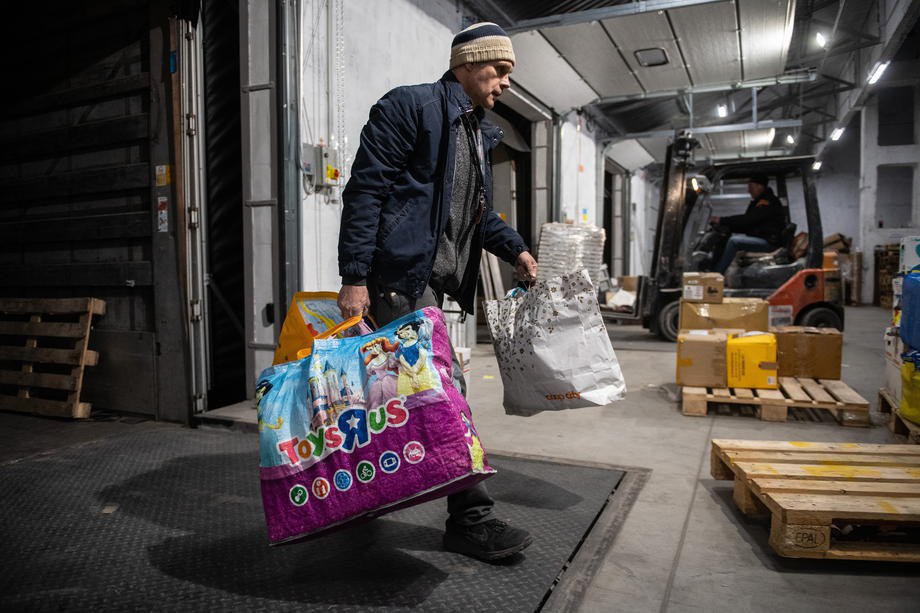
And this will also require social workers?
Definitely. In general, my advice to everyone who doesn't know where to find a job is to become a social worker.
We are thinking about how to make this work more prestigious. It should not be a job for minimum wage. There has to be respect in society. There has to be an understanding that this work is important and needed. During my internship in Scotland I saw how much social workers enjoy doing their job and how much their work is recognised in the community. Sometimes it is not so much the material provision that is important for people, but rather social recognition. This is something we will address as well.
It is now a trend in Ukraine to help. Maybe social work will also become a trend. Where should those who want to become social workers go to retrain?
We will run short courses with the help of donor organisations. You will be able to get information about them from job centres.
We are also thinking about courses for foster carers, we are forming a course and looking for funds for it. We will also advertise it through job centres because people who need work come there, as well as through the digital apps Child Not Alone and Diia for foster parents.
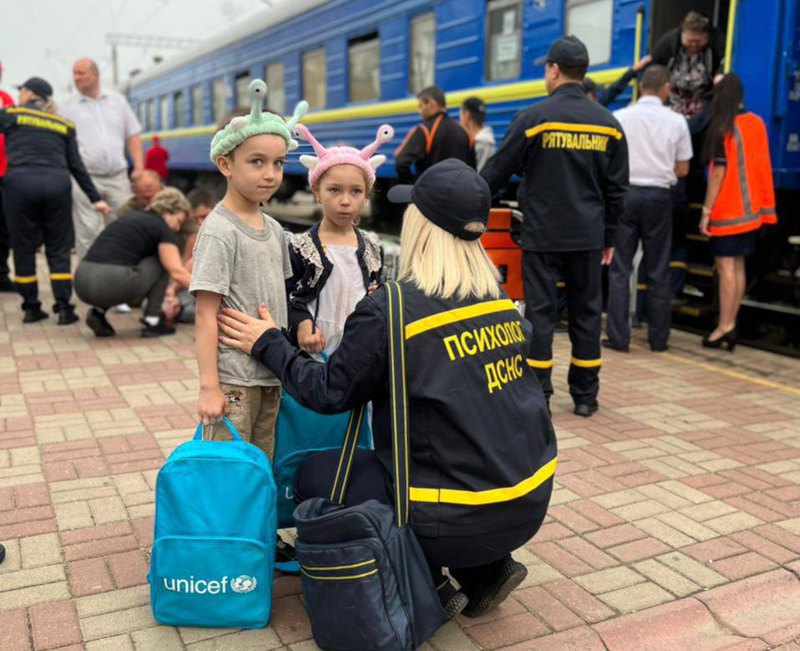
The government is planning to cut civil servants. Will this also affect your ministry?
Today, this is a necessity. Today we have the challenge of war, and there is a directive for all public authorities to consider streamlining processes. It is not a question of formal cuts. Today, a lot of processes are secondary, duplicative, unnecessary - just paper being carried about the structure. This is not systemic work, but simply overloading the system with bureaucratic procedures.
First, we will go through all the processes, identify the redundant ones, those that do not affect the result and try to optimise them. The ministry should, first of all, formulate policy. But so far the ministry has, for example, information about the number of children going to health resort and the stages of their recuperation. This should not be the responsibility of the ministry, clearly.
Many processes can be outsourced, can be procured from public organisations. And the ministry should retain specialists who formulate regulatory acts. We will 100% do an audit and I am sure that we will optimise unnecessary functions.
But it turns out that we are simultaneously complaining about losing people and cutting civil servants. Where will the people made redundant go? They will look for an opportunity to leave if they have adequate qualifications and know the languages. So we will lose the best people again.
They should be offered retraining.
I don't think everyone is going to leave at once. Abroad, life is not honey either. There is stiff competition there, tough conditions for survival. In fact, we sometimes have far more benefits for workers. For example, we pay sick leaves - that is, a person's lost earnings when he is sick. Almost no other country in Europe provides this kind of help. We have parental leave for children up to three years of age. Where else is there such leave? Even though we spread this lump sum birth payment over three years, it also partly covers the costs of living and looking after a child by then. There are no kindergartens in Scotland, and there are no kindergartens in England. There's school right away. And by then it's your problem where your child will be.
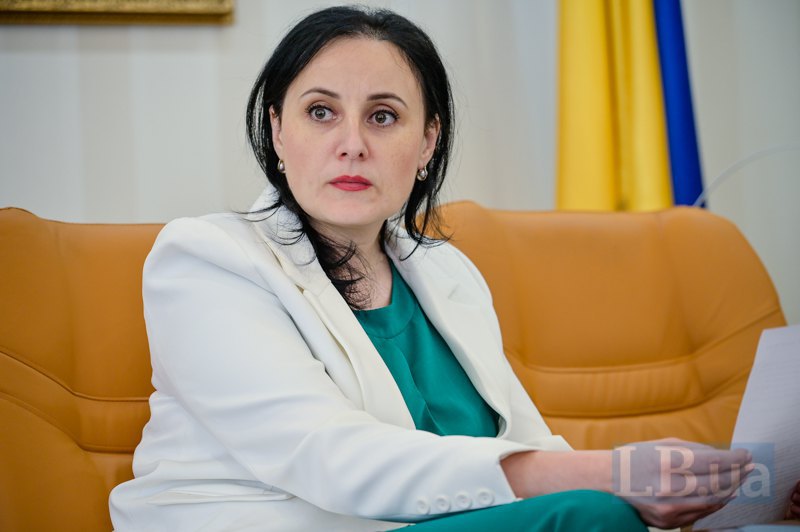
Who can a civil servant retrain for today? There is a widespread public attitude that civil servants have no skills and are useless. But in reality, civil service employs a lot of excellent professionals in very specific areas.
It is crucial to retain professionals who have specific skills. While people who have a professional deformation - and there are some - should undoubtedly be retrained. Perhaps they can be employed by private employment agencies.
This market is going through difficult times right now.
It is now slowly coming back to life. New vacancies are springing up. I can see how many more cars there are in central Kyiv compared to May. People are coming back because they want to keep their families and ties to Ukraine.
Ukraine is not bad at all. I think that some of the people who left and saw life abroad have understood that we do not have a crisis here, not a disaster...








